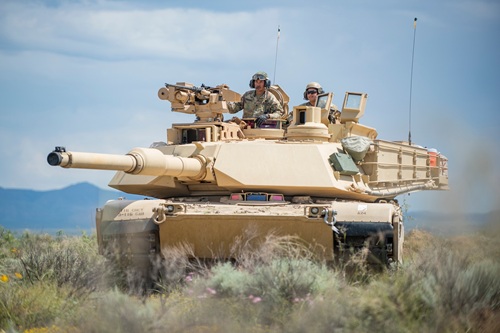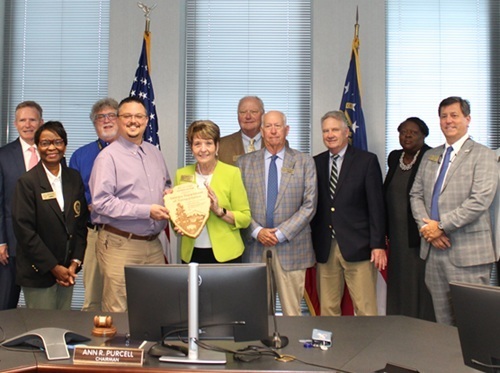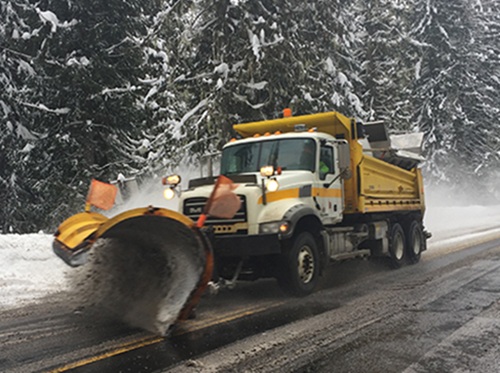The Idaho Transportation Department or ITD is forging a new path to improve seasonal road operations by leveraging military experience to address a long-standing challenge: the shortage of qualified Commercial Driver’s License or CDL holders.
[Above photo by the ITD]
The agency said Idaho is currently short by roughly 5,000 qualified CDL drivers – and with 72 percent of goods in the state transported by truck, that workforce deficit is affecting supply chains as well as public safety.

Through a new program that utilizes existing military training, ITD aims to address the shortfall by streamlining certification to build a greater pool of skilled CDL holders – workers that could also assist the agency during seasonal operations, such as driving snowplows during the winter.
ITD said it now looks to enable the National Guard, reservist, and prior-service military members with extensive experience operating commercial and heavy equipment to potentially convert their qualifications into civilian CDL licenses to help with seasonal needs – especially with aforementioned snowplow operation needs.
Other benefits of this new ITD-military linkage for workforce recruiting include expanded coverage of secondary and rural roads during winter operations; building a reliable workforce of disciplined service members aligned with ITD’s high standards for maintenance personnel; improved public safety and emergency response; and economic and career advancement for participants – leading to good paying jobs with career paths.
Also, because soldiers come from communities throughout Idaho, their familiarity with local terrain will be invaluable, ITD noted.

“There’s a perception that the CDL process is too complex or expensive,” said Will Miller, ITD’s enterprise technology services or ETS business engagement manager, in a statement.
“But for those with military driving and equipment experience, the path is far more accessible than they might think,” he said. “The challenge has been getting the word out…to give them a clear path forward.”
Recent efforts focus on raising awareness among the military community, Miller noted, as many service members aren’t aware that their expertise with military commercial and heavy equipment can significantly reduce the time and cost of obtaining a CDL.
The ITD said this new CDL partnership could have several applications, including temporary winter support, year-round assistance, and an on-call reserve list for emergencies. Training access, credential support, and scheduling flexibility could all be part of implementation, with seasonal performance metrics potentially guiding future program refinement.
“As more members of the military community learn about their options, we can anticipate a meaningful uptick in CDL holders statewide, and this initiative will allow them to become qualified much faster,” Miller said. “This is more than a staffing solution – it’s a public service accelerator that addresses the three core priorities at the heart of ITD’s culture: safety, economic opportunity, and mobility.”
 States
States
Maine DOT Commissioner Van Note to Retire August 15
August 1, 2025 States
States

